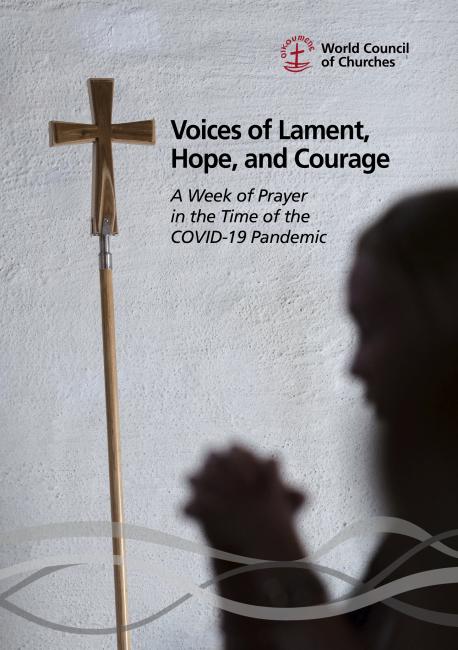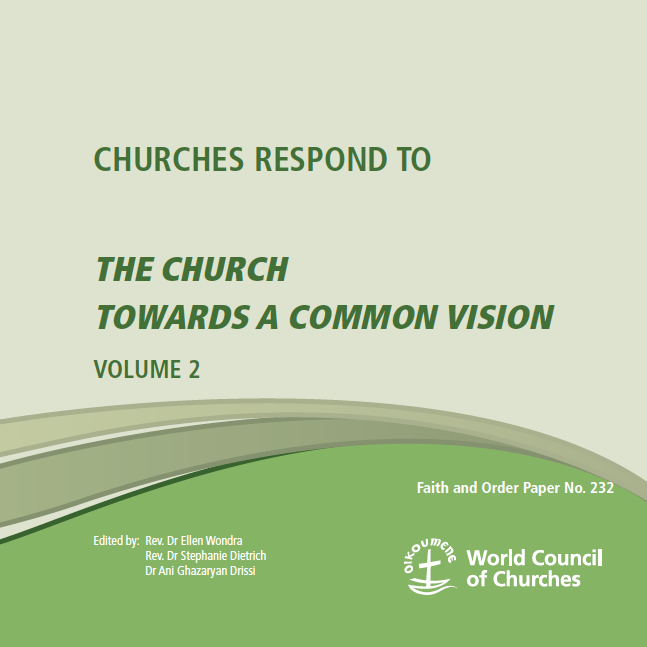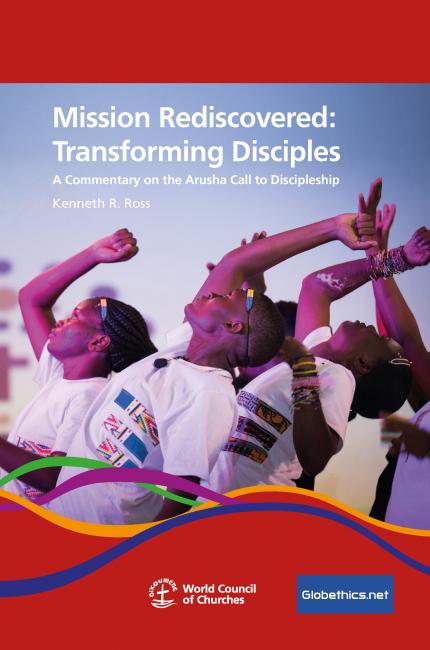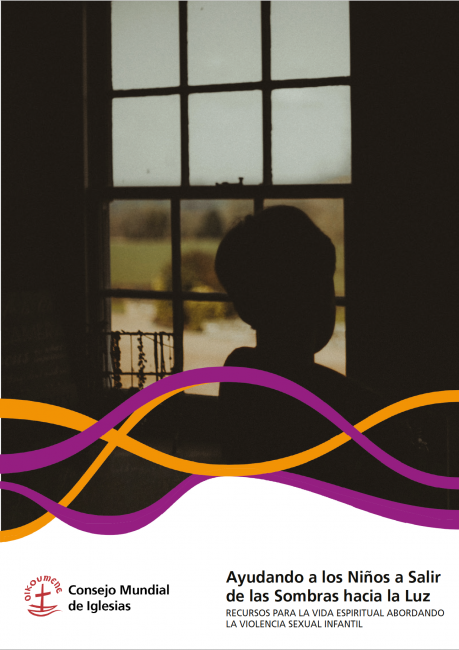Displaying 141 - 160 of 262
Voices of Lament, Hope, and Courage
A Week of Prayer in the Time of the COVID-19 Pandemic
18 March 2021
Churches Respond To The Church: Towards A Common Vision Volume I
Faith and Order Paper No. 231
23 February 2021
Churches Respond To the Church: Towards a Common Vision Volume II
Faith and Order Paper No. 232
23 February 2021
Love and Witness
Proclaiming the Peace of the Lord Jesus Christ in a Religiously Plural World
18 January 2021
Mission Rediscovered: Transforming Disciples
A Commentary on the Arusha Call to Discipleship
02 December 2020
Cooler Earth - Higher Benefits
Actions by those who care about children, climate and finance.
20 November 2020
Ecumenical Global Health COVID-19 Response Framework
12 November 2020
Helping Children Out of the Shadows and Into the Light: Brochure
Church Resources For Ending Sexual Violence Against Children
04 November 2020
Helping Children Out of the Shadows and Into the Light: Spiritual booklet
Resources For Spiritual Life Addressing Sexual Violence Against Children
04 November 2020













